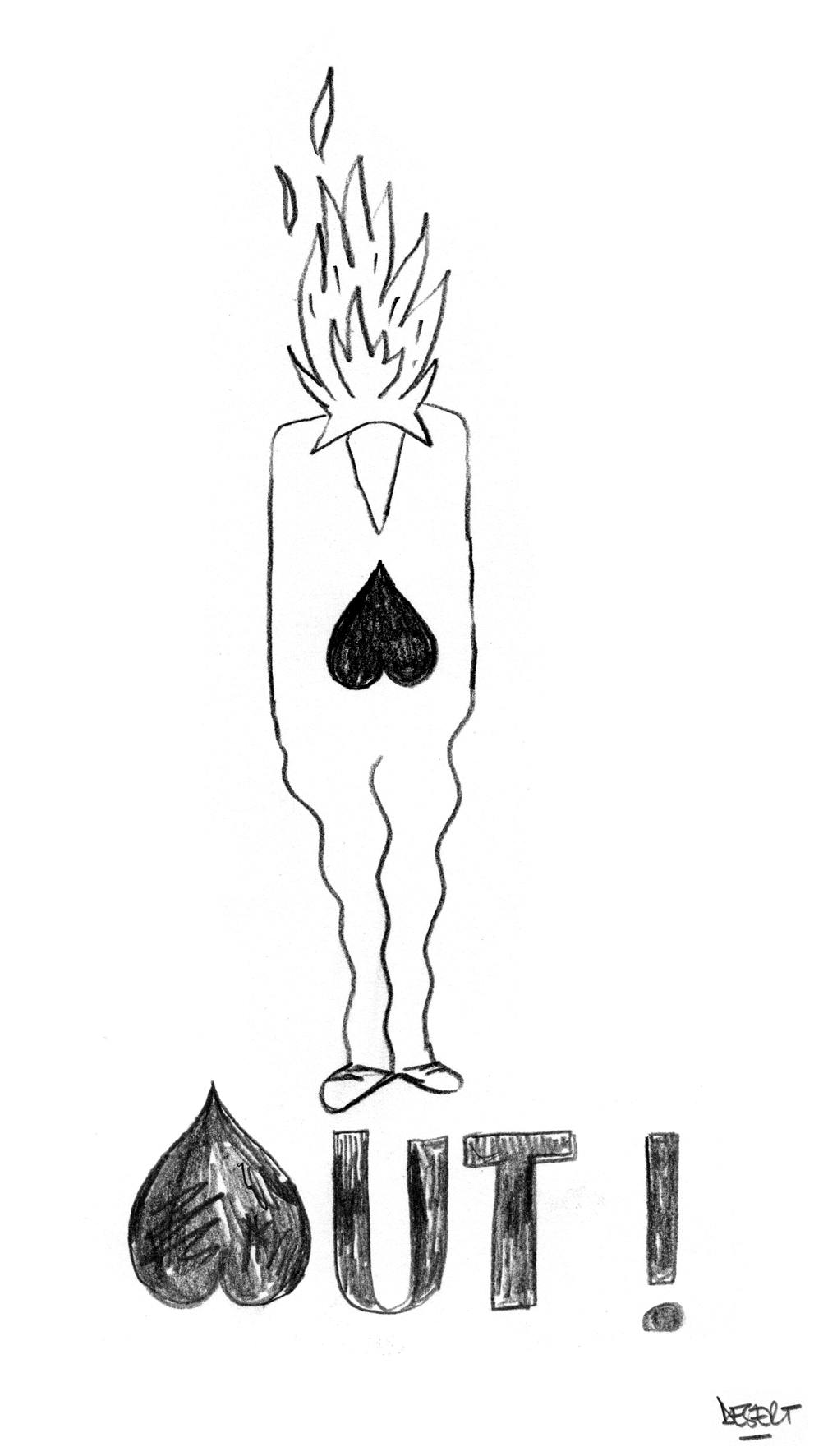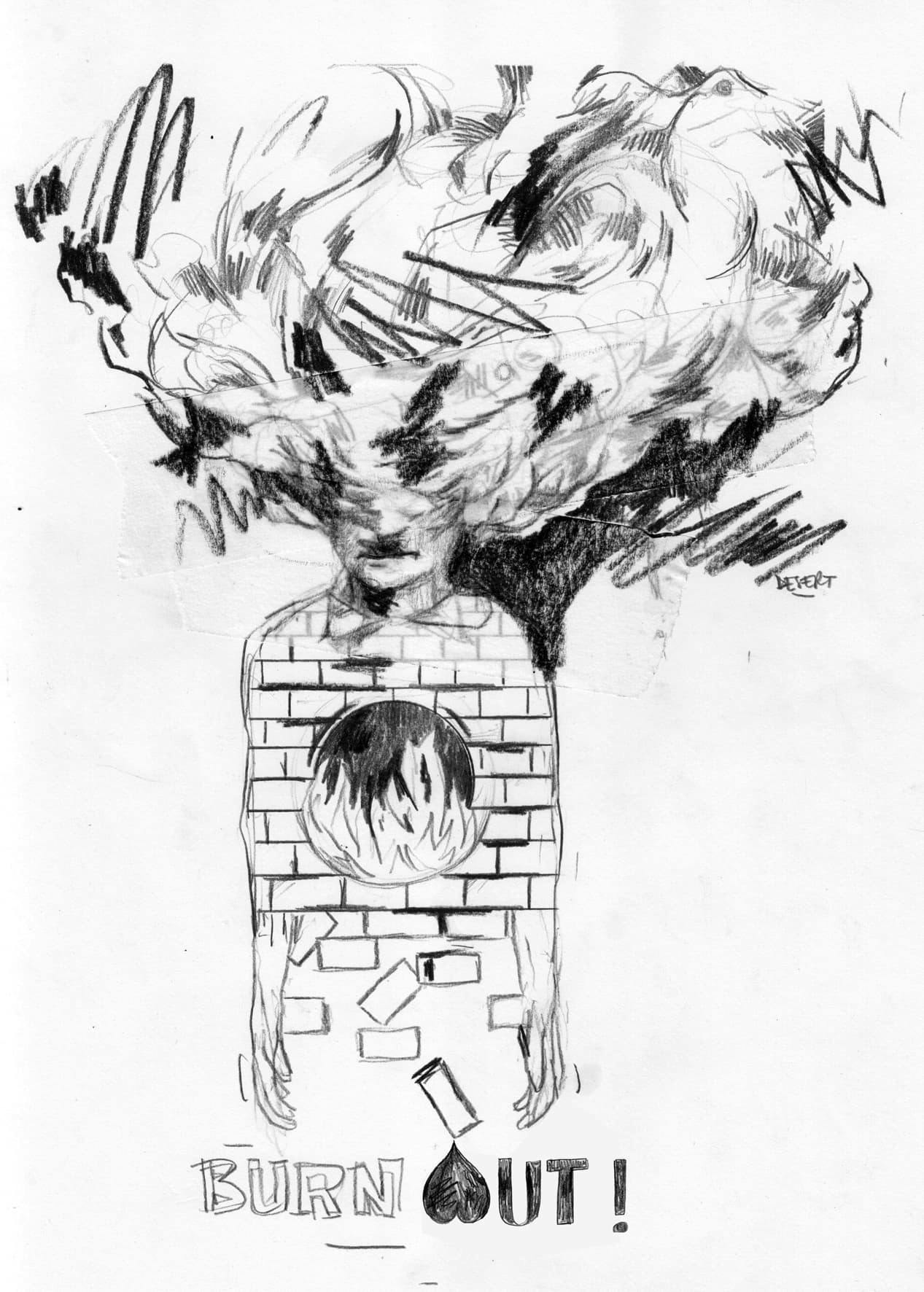
Rethink Culture to Drive Successful Transformations
Rethink Culture to Drive Successful Transformations
December 2025



May 2025

Individual symptoms or disease of our time?
Three angles to understand where burnout comes from.
To understand the causes of burnout/burnout, there are 3 points of view: sociological (the impact of norms and the system), organizational (the way in which work structures influence burnout) and personal (the way in which each person lives, manages and integrates this pressure).
If you only have 2 minutes I suggest you go directly to the conclusion at the bottom of this page ;-)
If you have more time, grab a drink and read this.

Suppose that the ailments you suffer from are not only of your own making, but rather of the type of society in which you live. Also rules, type of environment, beliefs etc...
Imagine: if you had been born in 1656, what would your life have been like? And... What would you have suffered from?
I take up a sociological thesis that observes that (psychic) illnesses evolve according to the eras: Michel Foucault in "History of Madness in the Classical Age" (1963) presents the history of unreason confronted with that of power.
Michel Foucault's thought is a critique of the ways in which a society decides who is "normal" and who is "crazy," thus revealing the mechanisms of power behind discourses of truth.
To continue the journey in 1656, let us go into the story of the "history of madness". You are in Paris in the district of your choice and are inspired by the times "With the birth of the Hôpital Général, a new social and political attitude was established. Little by little, throughout the 17th and 18th centuries, the marginalized, delinquents, beggars, idle and idle were hunted down, also considered as detestable humans. Detestable certainly, guilty too, sinners, "frenzied" because they are outside the common order. Over time, opponents of power, libertines, short story writers, will also be considered dangerous beings. All of them are declared to sin against reason, against God, against power. The men will be taken to the Bicêtre hospital and the women will go to the saltpetre. This is the order that has come about, it is going to spread, by means of the police, to so many social strata that have become poor. Then comes what is called the great confinement. And the 18th century will be filled with police reports, complaints too, so that these "outsiders" of society can be punished
Michel Foucault also evokes the famous image of the Ship of Fools. At the end of the Middle Ages, some European cities expelled their fools by entrusting them to boatmen. These "ships" had the function of keeping the madmen away from the cities, sometimes by handing them over to other cities, sometimes by letting them drift into endless exile. The objective was not to treat them, but to exclude them from the social space
Gradually, doctors took over, madness turned into mental illness, subject to the authority of medical knowledge. This marks the birth of psychiatry, but also the reduction of madness to an object of technical knowledge. Michel Foucault denounces a certain way of doing psychiatry, which constructs the "madman" by not conforming to the norm what is outside the established order.
On the same note, I recommend "The Spinoza Problem by Irvin Yalom", a novel that brings to life Spinoza, this philosopher who was excommunicated from his community for having dared to place reason above religious dogmas.
Through his destiny, Yalom forcefully shows how the quest for freedom of thought can disturb the established order... but also to enlighten our humanity.

So I understand this testimony of Jean-Philippe, 54 years old, back office employee in a bank, manager of a team of a few people. He told me: "I feel in difficulty. I don't sleep much, I wake up at night, anxious at the idea of making a mistake in my work. Every day already starts with this fatigue and fear in my stomach. I am followed by the occupational doctor, but I make my appointments at 8:15 a.m., before the office. I'm too afraid of being seen as "a problem" by my superiors if I were absent during my working hours. So I continue to "hold on". But I know that this maintenance comes at a price: an inner pressure that eats away at me a little more every day. »
What would you do in his place?
What are all our efforts not to be excluded? Today, it is no longer the walls of a hospital or the imposed silence that call us to order, but implicit norms that govern the world of work: constant performance, unfailing availability, unfailing motivation.
Question out of the box: what happens to a CEO or a sales director if he does not produce at least more performance each year than the previous year? It is logical to answer this question with the logic of our time...

A sociological essay that has become a reference, "The Fatigue of Being Oneself", by Alain Ehrenberg shows that depression (and exhaustion) is not only an individual disease but above all a social symptom of neo-capitalism.
Ehrenberg wonders about the reasons for the growing popularity of depression: exhaustion, inhibition, insomnia, anxiety, indecision—common ailments now interpreted as depressive
I recommend reading this book because it is an analytical tool to understand how modern social norms impact mental health.
My intention is not to condemn a particular system, and in this case neo-capitalism, but to show that each model generates its own forms of suffering. Today's burnout is linked to our social and economic organization. The good news is that by becoming aware of this connection, we can take a step back and take action where it hurts.
Ehrenberg observes that modern societies were based on guilt and discipline: one had to obey, to conform to the rules. Today, they value autonomy, initiative and personal responsibility. Everyone must be an actor in their own life, succeed on their own, be efficient and motivated.
These new behaviours have become necessary to meet the challenges of a world presented as increasingly complex, volatile and uncertain (the famous VUCA)
In this new paradigm, Ehrenberh shows that work, which is supposed to flourish, has become a source of psychological suffering.
This pressure to be "oneself" becomes heavily demanding: it requires a constant mobilization of individual energy — which can lead to exhaustion, in other words "self-fatigue"
And in the face of the fatigue of being oneself, depression then reflects a feeling of inadequacy in the face of the ideal, of the injunction of autonomy and performance promoted by contemporary culture.
And a double constraint: if we do not appear to be in the ideal of the social norm of success, the risk is exclusion. We know that exclusion hurts the deepest — and that's why we do everything we can to stay "inside", at the risk of running to exhaustion. CQFD.
Which can lead to the question: to what extent does our work define us as beings? What are our other sources of social identification? And if they no longer existed, who are you? Who would you have been in 1656?
Beyond social causes, there are also causes related to the organization of work and also to the individual.

The various studies (and this is also the observation from my experience) show that it is mainly organizational factors and safety and quality of life factors that are taken into account in the causes of burnout.
In a study by Alexandra Salembier-Trichard, personal factors account for 40% of the causes of burnout, while organizational factors account for 60%. Among the latter, the quality of management plays a central role. (source: L'Information psychiatrique, 2019).
It would therefore be wrong to make burnout the indicator of a pre-existing personal weakness: it is the environment in which individuals work – in particular the organization of work – that generates burnout and not the people themselves – or, more precisely, their supposed inability to meet the demands of their job.
The causes of burnout that I hear cited the most in the field are
At the organizational level, Maslach and Leiter's work identifies six main risk factors for team burnout:
Being well organized, having good collective work processes, and governance adapted to the situation is therefore a necessity. It's the interrelationships between the teams that make the difference.
If they are not taken into account, these risk elements are exacerbated in contexts of managerial transformation (new culture, rationalization, performance improvement).
In this case, only a systemic approach can prevent burnout, with a priority that also puts people in the driver's seat.
By the absurd, it is clear that current programs of yoga, meditation, nutrition training, wellness days are nice but often treat the symptoms, not the causes.
And training for resilience does not compensate for a toxic environment.
One avenue for improvement for the well-being programs already in place would be to examine how these tools and initiatives could be relevant and effective if they are integrated into a broader systemic approach that first addresses organizational causes, thus becoming useful complements rather than palliatives.

Relationships at work play a key role in the perception of well-being at work. Factors such as lack of social support(from colleagues, from the hierarchy), unresolved conflicts, isolation or dehumanised relationships with beneficiaries (particularly in the care professions) are all levers of weakening. Professionals often express a feeling of loss of meaninglinked to a discrepancy between their values and the behaviours and requirements of their environment.
An example often cited is "we are asked to participate among ourselves but the decisions above are uniliteral and imposed", "I do it with my team but my boss does not do it with me",...
Concrete measures: protected feedback channels, taking toxic behaviors into account in exchanges, strengthening benevolent leadership, rethinking the organization to make it inclusive and sustainable.
Connecting to the best of each person makes a difference through the quality of relationships.
Finally, it would not be fair to attribute the cause of burnout to our society and the organization of work. Everyone also has levers to act at their own level.
Knowledge of oneself and one's limits
Over-investment in work, perfectionism, a high need for recognition or difficulty setting personal limits are regularly identified as causes of burnout.
The failure to take into account the warning signs (chronic fatigue, cynicism, sleep disorders, irritability) aggravates the situation.
Being well surrounded, a bulwark against burnout
Burnout is often associated with a difficult professional context, but studies show that it is also rooted in the quality of the person's human relationships. Among the most powerful protective factors identified, social support — especially from personal circles — plays a key role.
A quality relational environment, including strong relationships with family, friends or life partner, not only helps to cope better with professional stress, but also significantly reduces the risk of emotional exhaustion. This support acts as a "buffer resource", allowing to restore balance to the demands of work, and promoting better resilience.
Research with nurses, for example, shows that nurses who feel supported by their loved ones are less prone to professional cynicism, loss of efficacy and emotional isolation. Conversely, isolation — whether social or emotional — tends to accentuate vulnerability to chronic stress, creating a vicious circle between psychological suffering and relational disengagement.
Thus, in a dynamic of burnout prevention, it is essential not to limit oneself to actions focused on the workplace, but also to promote the quality of human links in all spheres of life.
Being well surrounded is not a luxury, but a real mental health strategy.
Burnout is not just an individual problem: it is a mix of personal, organizational and societal factors.
Burnout is a story of peopleOn an individual level, some people are more vulnerable because they carry very high ideals in their work. This is particularly true in the helping professions (caregivers, teachers, etc.) where one expects recognition, accomplishment or even love from one's profession. When reality does not match these expectations, disillusionment can be brutal. Overinvestment, difficulty delegating, low self-esteem and the tendency to confuse personal value with professional performance also promote burnout.
When the organization tiresBut beyond people, organizational causes are central. An excessive workload, a lack of autonomy, a lack of recognition or unsupportive management create a breeding ground for burnout. Employees come to feel isolated, misunderstood, and sometimes trapped in unclear or unfair roles. The collapse of the collective, the conflicts of values, the brutal changes in organization and the dehumanization of labor relations reinforce this feeling of wear and tear. In short, it is not only "the fault of the individual", but very often a dysfunctional system.
In a society under pressureFinally, the phenomenon is also taking root in our society. The cult of performance and "always more" pushes everyone to live as a "self-entrepreneur", always flexible, available and efficient... but without guarantees in return. The acceleration of the pace of life, the digital pressure, the fear of failing or not being adaptable enough weigh heavily. Even the media coverage of burnout has sometimes shifted the problem by making the individual responsible ("disconnect!") instead of questioning collective and organizational choices. Basically, burnout confronts us with a larger question: how can we rethink our ways of working and living so that humans can find their place again?
The broader open question is to question ourselves and to "act" concretely at the 3 levels, therefore societal, organizational and individual, so as not to remain only at the level of awareness.
The causes of burnout are complex and often systemic. So, how can organizations and managers take concrete action to protect their teams? Discover an action plan and an essential checklist to build a healthier work environment.
Organizations have a major role to play. But for those who are already exhausted, a path of transformation is possible.
Explore the key steps to get out of it and see how to support your loved ones on this path.
Read more:
Take action; build an anti-burnout team! Learn how to create the culture that enables a sustainable workplace
If you are concerned individually, go through the steps to get out of burnout. This is a transformative opportunity.

Did you like this article?

Rethink Culture to Drive Successful Transformations
December 2025


Burnout is rising worldwide. From Gallup to McKinsey, discover what the data — and the lack of it in Luxembourg — really reveals about workplace stress.
May 2025


Beyond the numbers: definition of burnout, symptoms vs. boreout, and lived experiences to spot risks early and avoid collapse.
May 2025
